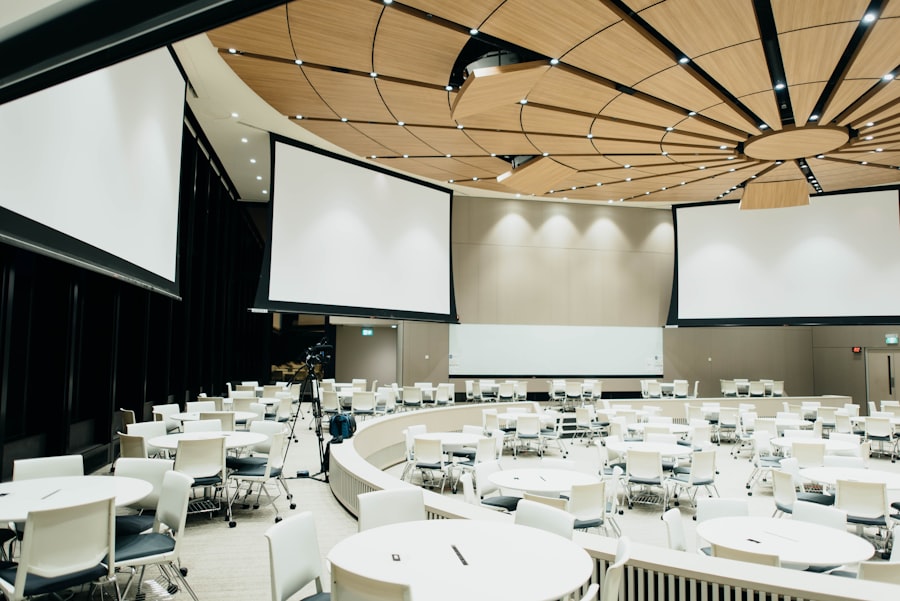A panel interview is a job interview format where multiple interviewers, typically three or more, simultaneously assess a candidate. This approach allows employers to gather diverse perspectives and make more comprehensive hiring decisions. Panel interviews can be challenging for candidates due to the increased number of interviewers and the pressure to perform well in a group setting.
However, understanding the structure and expectations of a panel interview can help candidates prepare effectively and reduce anxiety. During a panel interview, interviewers may ask questions individually or collectively. Candidates should maintain eye contact with all panel members and address responses to the entire group, demonstrating effective communication skills across various personalities.
Panel interviews often include a mix of behavioral, technical, and situational questions to evaluate a candidate’s qualifications, skills, and cultural fit. Familiarity with these question types can enhance a candidate’s preparation and confidence. By understanding the format and potential challenges of a panel interview, candidates can approach the experience with greater composure and readiness, increasing their chances of success in the hiring process.
Key Takeaways
- Panel interviews typically involve multiple interviewers and are designed to assess a candidate’s ability to handle pressure and interact with a variety of personalities.
- Researching the company and panel members can provide valuable insight into the company’s culture and the interviewers’ backgrounds, helping you tailor your responses and questions accordingly.
- Preparing for potential questions and scenarios involves anticipating common interview questions and practicing how to address them effectively.
- Practicing with mock panel interviews can help you become more comfortable with the format and receive feedback on your performance.
- Dressing and presenting yourself professionally is crucial for making a positive first impression and demonstrating your respect for the interview process.
- Managing nerves and anxiety can be achieved through techniques such as deep breathing, positive visualization, and reframing negative thoughts.
- Following up after the panel interview with a thank-you note or email can leave a lasting impression and demonstrate your continued interest in the position.
Researching the Company and Panel Members
Researching the Company
Researching the company will help you demonstrate your interest in the organization and show that you are prepared for the interview. Look into the company’s mission, values, recent news, and any notable projects or initiatives. This information will give you a better understanding of the company’s culture and goals, allowing you to tailor your responses to align with what the company is looking for in a candidate.
Understanding the Panel Members
In addition to researching the company, it’s beneficial to learn about the panel members who will be interviewing you. Look up their professional backgrounds, roles within the company, and any recent accomplishments or contributions. This information can help you establish a connection with the interviewers and understand their perspectives and priorities.
Benefits of Research
Knowing who you will be speaking with can also help you anticipate the types of questions they may ask and tailor your responses accordingly. Overall, thorough research on the company and panel members will demonstrate your preparedness and genuine interest in the opportunity.
Preparing for Potential Questions and Scenarios

In preparation for a panel interview, it’s essential to anticipate potential questions and scenarios that may arise during the interview. Panel interviews often include a variety of question types, such as behavioral questions, situational scenarios, and technical inquiries. Behavioral questions may ask about your past experiences and how you handled specific situations, while situational scenarios may present hypothetical challenges for you to solve.
Technical questions may assess your knowledge and skills related to the role you are applying for. To prepare for potential questions and scenarios, review the job description and identify key competencies and qualifications required for the role. Use this information to brainstorm examples from your past experiences that demonstrate your abilities in these areas.
Additionally, consider how you would approach common challenges or scenarios related to the role and practice articulating your thought process and problem-solving skills. By preparing for a range of potential questions and scenarios, you can feel more confident and ready to showcase your qualifications during the panel interview.
Practicing with Mock Panel Interviews
One effective way to prepare for a panel interview is to practice with mock panel interviews. Enlist the help of friends, family members, or colleagues to simulate a panel interview scenario and provide constructive feedback on your performance. This practice can help you become more comfortable with the format of a panel interview and refine your communication skills in a group setting.
Additionally, mock panel interviews can help you anticipate different interview styles and perspectives, as well as identify areas for improvement. During mock panel interviews, focus on maintaining eye contact with each “interviewer,” addressing all participants when responding to questions, and showcasing your ability to engage with multiple individuals at once. Pay attention to your body language, tone of voice, and overall confidence during the practice sessions.
After each mock panel interview, solicit feedback from your “interviewers” on areas where you excelled and areas where you could improve. Use this feedback to make adjustments and enhance your performance for the actual panel interview. Practicing with mock panel interviews can help you feel more prepared and polished when facing the real interview.
Dressing and Presenting Yourself Professionally
In a panel interview, it’s important to dress and present yourself professionally to make a positive impression on the interviewers. Your appearance and demeanor can convey your level of professionalism, attention to detail, and respect for the opportunity. When choosing your outfit for a panel interview, opt for business professional attire that is well-fitted, clean, and appropriate for the company culture.
This may include a tailored suit, conservative dress or skirt with a blouse, polished shoes, and minimal accessories. In addition to dressing professionally, pay attention to your grooming and personal presentation. Ensure that your hair is neatly styled, your nails are clean and manicured, and your overall appearance is well-groomed.
Practice good posture and maintain confident body language throughout the interview. When presenting yourself professionally, you demonstrate that you take the opportunity seriously and are committed to making a positive impression on the panel members. By dressing and presenting yourself professionally, you can exude confidence and convey your readiness for the role.
Managing Nerves and Anxiety

Relaxation Techniques for a Calm Mind
It’s natural to feel nervous or anxious before a panel interview, but there are strategies you can use to manage these feelings and perform at your best. One approach is to practice relaxation techniques such as deep breathing, visualization, or mindfulness meditation in the days leading up to the interview. These techniques can help calm your nerves and center your focus before entering the interview room.
Boosting Confidence and Self-Assurance
Additionally, remind yourself of your qualifications, experiences, and strengths to boost your confidence and self-assurance. This can help you feel more prepared and capable of handling the interview.
Reframing Your Mindset
Another way to manage nerves and anxiety is to reframe your mindset about the interview. Instead of viewing it as a high-pressure situation, think of it as an opportunity to have a meaningful conversation with potential colleagues about your skills and experiences. Shifting your perspective can help alleviate some of the stress associated with the interview process.
Embracing Your Nerves
Finally, remember that it’s okay to feel nervous – it’s a sign that you care about doing well. Embrace your nerves as a natural part of the process and use them as motivation to prepare thoroughly and present yourself authentically during the panel interview.
Following Up After the Panel Interview
After a panel interview, it’s important to follow up with a thank-you note or email to express your gratitude for the opportunity and reiterate your interest in the position. Send individualized messages to each panel member, acknowledging their time and consideration during the interview process. In your thank-you note, highlight specific aspects of the discussion that resonated with you or reiterate how your skills align with the company’s needs.
In addition to expressing gratitude, use this opportunity to reaffirm your enthusiasm for the role and emphasize your continued interest in joining the team. This follow-up communication demonstrates professionalism, courtesy, and proactive communication skills – all of which are valued by employers. It also keeps you top of mind for the hiring decision-makers as they evaluate candidates after the interview process.
By following up after the panel interview, you can leave a positive lasting impression and potentially influence their decision in your favor.
If you’re looking to prepare for a panel interview, you may also be interested in learning how to prepare for a technical interview. This article on Careers Help provides tips and tricks for navigating technical interviews, which can be a valuable resource for anyone entering the job market. Check it out here.
FAQs
What is a panel interview?
A panel interview is a type of job interview where a candidate is interviewed by multiple interviewers at the same time. This can include managers, team members, and other relevant stakeholders.
How should I prepare for a panel interview?
To prepare for a panel interview, research the company and its culture, practice answering common interview questions, and prepare specific examples of your skills and experiences. It’s also important to anticipate questions from different perspectives and be ready to engage with multiple interviewers.
What are the benefits of a panel interview?
Panel interviews allow for a more comprehensive evaluation of a candidate as multiple perspectives are considered. It also provides the opportunity for the candidate to interact with various team members and decision-makers at once.
What are some common challenges in a panel interview?
Some common challenges in a panel interview include managing nerves when facing multiple interviewers, addressing different interview styles and personalities, and ensuring that you engage with each interviewer while maintaining a cohesive message.
How can I make a good impression in a panel interview?
To make a good impression in a panel interview, be confident, maintain eye contact with each interviewer, and address each person when answering questions. It’s also important to listen actively, ask thoughtful questions, and demonstrate your ability to work well with different personalities.



